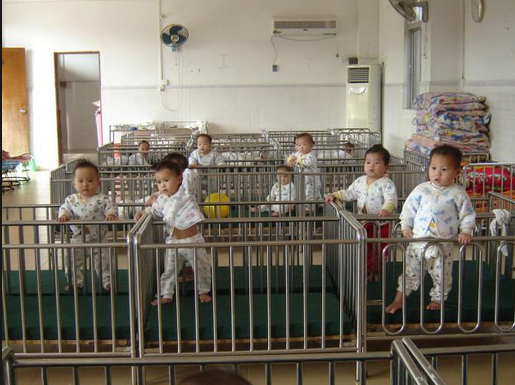I recently came upon a post on the blog Rage against the Minivan that I found it highly intriguing and thought I’d share. Here is an excerpt from the beginning:
How the Christian Orphan Movement May Be Enabling Child Abandonment
Last week I got to speak at Idea Camp about orphan care. I shared my concerns about the trend of churches opening orphanages in third world countries instead of working at keeping children together with their parents. I suggested that the solution to poverty orphans (children who are placed as a result of poverty instead of the death of a parent) should be to provide resources to the family, instead of requiring the child to move into an orphanage for assistance. I shared my belief that the funds spent on feeding a child in an orphanage would be better spent funding that child’s birth family to keep them, and that perhaps we are even enabling families to abandon their kids when we show up in impoverished communities with a shiny new building with beds and three guaranteed meals a day. If the orphanage seems like the best option in town for giving your child an education and getting them fed, who wouldn’t drop their child off? I’ve seen far too many children living in orphanages who have loving, living parents.
After my talk, a lot of people affirmed me for “speaking truth” and “going there” and “bringing it”, and you know what? It made me sad. I’m concerned that the notion of family care is a novel idea when we are talking about orphans. I’m worried at how myopic we’ve become when we prioritize orphanages over family care. It’s disconcerting that the orphan care movement is so willing to throw money at the institutional care of a child, but not at parents who are capable but poor.
That’s not to say that some people aren’t helping keep families together. There are plenty of people sponsoring children in 3rd world countries, which is definitely a good model for preventing orphans. But in conversations with people who work in most of these large child sponsorship programs, I’m hearing that they get repeated requests from sponsors that they want their child to be “an orphan” . . . because for some reason that makes people more willing to help. I’ve heard the same thing from friends who run programs for young mothers. People are much less likely to support a young mom than they are to support an orphan.
Don’t get me wrong – I think supporting orphans is important. Vitally important. But I want to make sure that we aren’t creating and sustaining a child’s orphan status because it’s the only way we are offering a family aid. An orphanage is not a good way for a child to grow up. We have tons of research supporting the idea that children raised in institutional settings will struggle relationally, cognitively, and emotionally. In the US, we see that non-family care leads to horrible statistical outcomes: less likely to go to college, more likely to be in prison, less likely to gain employment, more likely to be homeless. Therefore, when we talk about “orphan care”, our goal, when possible, should be family care.
An orphanage should only be a triage situation, where we do crisis management and then assess our next steps. We shouldn’t, as Christians, be taking children from reluctant parents who only bring their children out of desperation. If we have the funds to feed a child, let them live with the family while we feed them. Why is this a novel idea??
This article is especially interesting when read in tandem with Kathryn Joyce’s Mother Jones article on the evangelical adoption movement and Billy Graham’s recent statements arguing that sexual abuse is a bigger problem in the evangelical world than in the Catholic Church (and that this is especially true on the mission field).















